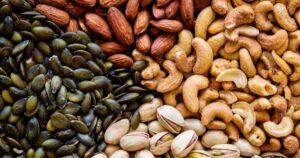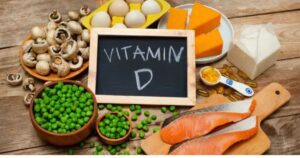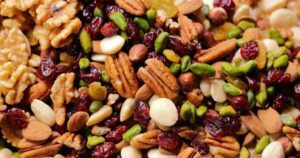Top High Protein Foods in the USA for Muscle, Weight Loss, and Overall Health:

This guide explores the top high protein food in the USA that support weight management, muscle growth, and overall wellness—backed by research and real-world results. The best high protein foods for Americans, discuss practical ways to include them in meals, and provide tips to maximize your protein intake for optimal health and energy. By the end of this article, you’ll have actionable strategies to boost your protein consumption and make healthier choices effortlessly.
Are you struggling to meet your daily protein needs? Whether you’re trying to lose weight, build muscle, or simply stay healthy, getting enough protein can be challenging in today’s busy lifestyle. Many Americans rely on quick meals, processed foods, or snacks that are low in protein, leaving them feeling fatigued or unable to reach their fitness goals. Fortunately, there are plenty of high protein foods available in the USA that are both delicious and easy to include in your daily diet.
In the United States, more people are focusing on fitness and nutrition than ever before. Whether you’re trying to lose weight, build lean muscle, or simply stay healthy, your protein intake plays a crucial role. But with hundreds of food options available, it’s important to know which ones actually deliver the best nutritional value.
Why Protein is Essential for Your Health
Protein is one of the three macronutrients essential for life, along with fats and carbohydrates. It plays a crucial role in building and repairing muscles, supporting your immune system, maintaining healthy hair, skin, and nails, and even regulating hormones. Yet, many Americans fall short of the recommended daily intake of protein, which is roughly 46 grams per day for women and 56 grams per day for men, depending on age, activity level, and health goals.
Increasing your protein intake can help:
- Support muscle growth and repair
- Enhance weight loss by increasing satiety
- Boost metabolism and energy levels
- Improve overall body composition
According to Healthline, adults should consume between 0.8–1.2 grams of protein per kilogram of body weight daily. However, most Americans consume either too little or depend on processed sources that lack quality nutrients.
Top Animal-Based High Protein Foods in the USA
Animal-based proteins are considered complete proteins, meaning they contain all essential amino acids your body needs. Here are some of the best options:

1. Chicken Breast
Chicken breast is one of the most popular high protein foods in the USA. A 3-ounce serving contains approximately 26 grams of protein and very little fat, making it ideal for weight loss and muscle building.
- Tips: Grill, bake, or stir-fry with vegetables for a quick meal
- Problem it solves: Low protein intake from processed foods
- Summary: High in protein, low in fat, versatile for many recipes
2. Eggs
Eggs are an affordable and convenient protein source. Each large egg provides around 6 grams of high-quality protein. Eggs also contain vitamins, minerals, and healthy fats, making them a nutritious choice for any meal.
- Tips: Boil, scramble, or make omelets with vegetables
- Problem it solves: Lack of protein in breakfast options
- Summary: Budget-friendly, nutrient-dense, easy to cook
3. Greek Yogurt
Greek yogurt is thicker than regular yogurt and contains nearly twice the protein. A 6-ounce serving can provide 15–20 grams of protein. It also supports gut health due to probiotics.
- Tips: Eat plain or mix with fruits and nuts for a protein-rich snack
- Problem it solves: Need for high-protein, low-sugar snacks
- Summary: High protein, probiotic-rich, versatile in meals
4. Salmon
Salmon is not only high in protein (around 22 grams per 3-ounce serving) but also loaded with heart-healthy omega-3 fatty acids. It’s a great option for those looking to improve overall health while meeting protein goals.
- Tips: Bake, grill, or pan-sear for a quick dinner
- Problem it solves: Low intake of both protein and healthy fats
- Summary: High-quality protein, rich in omega-3s, supports heart health
Top Plant-Based High Protein Foods in the USA
Plant-based proteins are essential for vegetarians, vegans, or anyone looking to reduce meat consumption. Many plant-based options are also rich in fiber and other nutrients.
1. Lentils
Lentils provide about 18 grams of protein per cooked cup. They are also high in fiber, which supports digestion and keeps you full longer [Include external link to USDA nutrition data].
- Tips: Use in soups, salads, or stews
- Problem it solves: Lack of affordable plant-based protein options
- Summary: Protein-rich, high in fiber, versatile in meals
2. Chickpeas
Chickpeas, also known as garbanzo beans, contain around 15 grams of protein per cooked cup. They can be used in salads, roasted as a snack, or mashed into hummus.
- Tips: Roast with spices for a crunchy snack or make hummus
- Problem it solves: Need for protein in vegetarian diets
- Summary: High protein, fiber-rich, versatile for snacks and meals
3. Tofu
Tofu is a complete plant-based protein with around 10 grams per ½ cup serving. It absorbs flavors well, making it perfect for stir-fries, soups, and even smoothies.
- Tips: Marinate and grill or stir-fry with vegetables
- Problem it solves: Limited high-quality plant protein sources
- Summary: Complete protein, versatile, low in calories
4. Quinoa
Quinoa is a complete protein and contains approximately 8 grams of protein per cooked cup. It’s also gluten-free and rich in magnesium, iron, and fiber.
- Tips: Use as a side dish, salad base, or breakfast porridge
- Problem it solves: Need for gluten-free high-protein grains
- Summary: Complete protein, nutrient-dense, versatile
High Protein Snacks and Quick Options
Busy Americans often struggle to meet protein goals due to lack of time. Protein-rich snacks are a convenient solution.

1. Protein Bars
Choose bars with at least 10–20 grams of protein and minimal added sugar. They are great for on-the-go meals or pre/post-workout snacks [Include external link to Healthline protein bar guide].
- Problem it solves: Need for convenient, high-protein snacks
- Summary: Portable, quick, and helps meet daily protein needs
2. Nuts and Seeds
Almonds, peanuts, pumpkin seeds, and chia seeds provide protein and healthy fats. A small handful can give 5–8 grams of protein and keep you full longer.
- Problem it solves: Hunger between meals with healthy protein
- Summary: Nutrient-dense, protein-rich, satiating snack
3. Cottage Cheese
Low-fat cottage cheese contains around 14 grams of protein per half-cup. It’s a perfect snack or addition to salads, fruits, or smoothies.
- Problem it solves: Easy and affordable high-protein snack
- Summary: High protein, low-fat, versatile for meals or snacks
4. Protein Powders – Convenient Boost for Busy Lifestyles
Whey, pea, or soy protein powders offer a convenient way to meet daily protein goals. Many Americans use them post-workout or as meal replacements.
- Choose low-sugar, third-party-tested brands.
- Can be mixed with smoothies, oatmeal, or baking recipes.
Refer to Mayo Clinic for protein supplement guidelines.
How to Build a Balanced High-Protein Diet
- Include both animal and plant-based sources for complete nutrition.
- Distribute protein intake evenly across meals.
- Pair protein with complex carbs and healthy fats for sustained energy.
- Stay hydrated to support digestion and metabolism.
Sample One-Day High-Protein Meal Plan (USA-Friendly)
- Breakfast: Greek yogurt with berries and chia seeds.
- Snack: Boiled eggs and almonds.
- Lunch: Grilled chicken salad with avocado and quinoa.
- Dinner: Baked salmon with steamed vegetables and brown rice.
- Evening: Cottage cheese or protein shake.
Pro Tips for Maximizing Protein Benefits
- Opt for organic, minimally processed protein sources.
- Avoid excess sodium and preservatives in packaged meats.
- Track your daily protein intake using fitness apps.
- Consult a nutrition expert if you have medical conditions or dietary restrictions.
Common Mistakes to Avoid
- Over-relying on protein shakes instead of whole foods.
- Ignoring fiber, vitamins, and hydration.
- Skipping breakfast or under-eating during the day.
Tips to Increase Protein Intake in Your Daily Diet
Even with high protein foods available, many people don’t know how to incorporate them effectively. Here are practical strategies:
- Include a source of protein in every meal (eggs for breakfast, chicken or tofu for lunch, fish for dinner)
- Use protein-rich snacks like Greek yogurt, nuts, or protein bars
- Blend protein powders into smoothies or oatmeal
- Replace carb-heavy snacks with protein-rich alternatives
- Plan meals ahead to avoid low-protein convenience foods
Conclusion:
Meeting your protein needs doesn’t have to be difficult. With the right foods and simple strategies, you can support muscle growth, weight management, and overall health effortlessly.
- Include both animal and plant-based proteins for variety and complete nutrition
- Use snacks like nuts, yogurt, or protein bars to boost intake throughout the day
- Plan meals to ensure every meal contains sufficient protein
- Choose nutrient-dense protein sources to maximize health benefits
FAQ
1. How much protein do adults need daily in the USA?
Adults typically need 46–56 grams of protein daily, but requirements may vary depending on age, activity level, and health goals [Include external link to CDC].
2. Can I get enough protein on a vegetarian or vegan diet?
Yes. Plant-based sources like lentils, chickpeas, quinoa, tofu, and nuts can provide all essential amino acids when combined appropriately [Include internal link to ‘Plant-Based Protein Guide’].
3. Are protein bars a healthy option?
Yes, if you choose bars with minimal added sugars and high protein content (10–20 grams). They are convenient for on-the-go protein intake [Include external link to Healthline protein bar guide].
4. Is it better to get protein from food or supplements?
Whole foods are preferred due to additional nutrients, but protein powders can be helpful for convenience or higher protein goals.
5. Can high protein diets help with weight loss?
Yes, protein increases satiety and can help preserve muscle mass during weight loss, supporting overall metabolism and fat loss.
Disclaimer
This blog is for informational purposes only and is not a substitute for professional medical advice. Consult with a registered dietitian or healthcare provider before making significant changes to your diet, especially if you have health conditions.
About the Author
This article is written by the VitaGlowZenith Editorial Team. We provide easy-to-understand, evidence-based wellness tips to help you make better health and lifestyle choices.